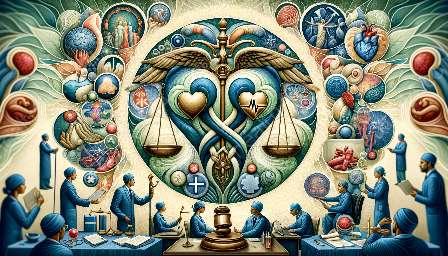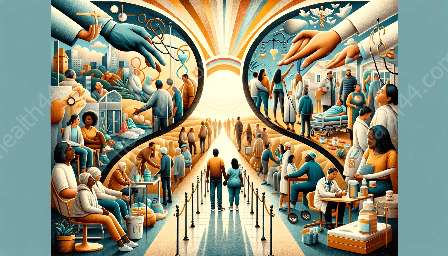Healthcare ethics and law are crucial components in the healthcare industry, shaping the delivery of health services and affecting patient care. The intersection of healthcare ethics and law raises complex questions about patient rights, professional responsibilities, and societal values. This comprehensive guide explores the ethical and legal considerations in healthcare, highlighting the significance of understanding and navigating this intersection for all healthcare stakeholders.
The Importance of Healthcare Ethics
Healthcare ethics encompasses the moral principles and values that guide decision-making within the healthcare setting. It is grounded in the fundamental commitment to promoting the well-being of patients, respecting their autonomy, and upholding justice in the delivery of healthcare services. Healthcare professionals, including physicians, nurses, and other practitioners, are expected to adhere to ethical standards that prioritize patient welfare and ensure the provision of high-quality care.
Key Principles of Healthcare Ethics:
- Autonomy: Respect for patient autonomy involves recognizing the right of patients to make informed decisions about their medical treatment and care.
- Beneficence: The principle of beneficence emphasizes the obligation of healthcare providers to act in the best interest of the patient and promote their well-being.
- Non-maleficence: This principle dictates that healthcare professionals must do no harm to the patient and minimize the risk of potential harm in their care.
- Justice: Healthcare justice addresses the fair distribution of healthcare resources, ensuring equitable access to care and treatment for all individuals.
Challenges in Healthcare Ethics
While the principles of healthcare ethics provide a framework for ethical decision-making, healthcare professionals often encounter complex ethical dilemmas that require careful consideration and resolution. Ethical conflicts may arise in situations involving end-of-life care, confidentiality, allocation of scarce resources, and the use of innovative medical technologies. Moreover, evolving societal values and cultural diversity further contribute to the complexity of ethical decision-making in healthcare settings.
The Intersection of Healthcare Ethics and Law
Healthcare ethics intersect with legal considerations, adding another layer of complexity to the healthcare landscape. The law plays a crucial role in regulating healthcare practices, defining the rights and responsibilities of healthcare providers, protecting patient confidentiality, and ensuring adherence to professional standards. By incorporating legal principles, healthcare law establishes a framework for accountability and governance within the healthcare sector.
Legal aspects of Healthcare Ethics:
Understanding the legal aspects of healthcare ethics is essential for healthcare professionals and organizations to navigate the complexities of patient care and healthcare delivery. Legal principles related to informed consent, confidentiality, liability, and negligence shape the boundaries within which healthcare ethics operate. Healthcare laws also address issues such as patient rights, the role of advance directives, legal implications of medical decision-making, and the intersection of medical ethics with broader legislative mandates.
Implications for Patient Care
The intersection of healthcare ethics and law has profound implications for patient care and the delivery of healthcare services. Ensuring ethical and legal compliance is critical for safeguarding patient rights, maintaining professional integrity, and promoting trust between healthcare providers and patients. By aligning ethical standards with legal mandates, healthcare organizations can prioritize patient safety, confidentiality, and access to appropriate care while upholding professional conduct and accountability.
Healthcare Ethics and Technology
The advancement of medical technology and the integration of digital health solutions pose new ethical and legal challenges for healthcare practitioners and policymakers. The use of electronic health records, telemedicine, and artificial intelligence in healthcare raises concerns related to data privacy, information security, and the ethical use of emerging technologies. As such, healthcare ethics and law must evolve to address the ethical implications of technology in healthcare, ensuring that patient rights and well-being remain protected in the digital era.
Conclusion
The intersection of healthcare ethics and law is a dynamic and multifaceted area with wide-ranging implications for healthcare professionals and patients. By understanding and navigating this intersection, healthcare stakeholders can uphold ethical values, comply with legal obligations, and promote the highest standards of patient care. Embracing ethical decision-making and legal compliance in healthcare is essential for fostering trust, professionalism, and integrity within the healthcare ecosystem.



















